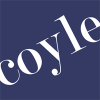Overall, deficiencies were relatively straightforward, with the most missed standards relating to asking if the guest had been to the spa before, and if not, asking how they had heard of the spa; two things probably every spa owner wants to know when the phone rings. Other oft-missed standards included asking gender preference, attempting to upsell, asking if the guest has further questions and addressing the guest by name.
For evaluators who rated the call a 1 or 2, which was especially poor, none of the spa staff provided detailed treatment descriptions or learned about the clients’ needs in terms of treatment preferences. This led to an obvious absence of personalized recommendations.
For those evaluators who rated the impression of the spa interaction a 9 or 10, the fulfillment for these same core standards scored very high. The data strongly suggests that, at a minimum, callers expect detailed and forthcoming information. At the next level, they expect the spa to spend their time investment wisely by selecting great treatments on their behalf.
This data gets supported another way. When asked what the best parts about the calls were, evaluators mentioned a knowledgeable/informative staff member 40% of the time. Friendly staff members were also mentioned 40% of the time. Staff who asked a lot of questions and listened well were mentioned 26% of the time and excellent/appealing descriptions provided was cited 25% of the time. Also mentioned were assurances that choices were excellent (14%), great recommendations (13%) and enthusiasm about the spa and other facilities.
Taking all of these positive comments, we have the ‘perfect spa coordinator’. Someone who asks questions, gauges needs, provides detailed descriptions of treatments and spa offerings and demonstrates care and enthusiasm. Unfortunately, it is understood that some spas can not designate the human resources to ensure this happens every time, especially if two calls come at once or the reception desk gets busy. The very definition of what the guest wants on these calls is skilled, customized and undivided attention.
On the flip side of the coin, when asked what the worst part about the call was, evaluators were quite varied in their responses. Again we saw staff that were not forthcoming with answers/information or provided information that was unclear (30%). Other things mentioned were that the call was not customized to guest needs/wants (10%), a lack of questions or collaboration (10%) and long or several holds (10%). Interestingly, 8% also stated that the reservationist seemed to want to simply email a menu instead of speaking with the evaluator on the phone. Based on what we now know, this is a nightmare scenario.
The fact that 10% of the calls encountered multiple transfers or long holds is disconcerting. A lost, misdirected or delayed call starts the interaction off on a negative note, something that is difficult to recover from. The failure rate seen in this small sample is particularly alarming, and is much more prevalent than in sister hospitality industries (hotels, restaurants, cruises). To be fair, some hotels have a larger scale to outsource the calls to a skilled labor pool which may result in improvements, but the stark difference in defect rate is remarkable.













